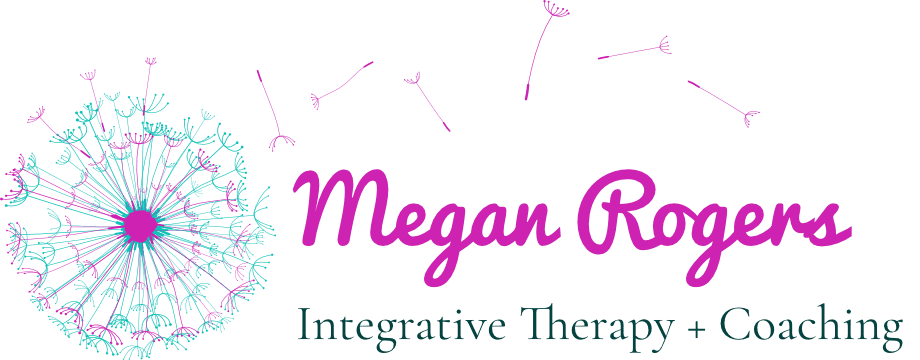Drinking and anxiety, ugh. Ever woken up super early after a night of drinking and had a near panic attack thinking about all the things you wouldn’t be able to accomplish today because of your hangover? Or feel like you want to hide, thinking about what you might have said last night?
Many people turn to alcohol to cope with feelings of anxiety. However, alcohol can actually make anxiety worse in the long run. If you struggle with anxiety and alcohol, working with a coach who specializes in recovery can help you achieve sobriety and better manage your anxiety.
The Connection Between Drinking and Anxiety
Alcohol and anxiety have a complex relationship. In the short term, drinking can feel like it reduces feelings of anxiety. Alcohol is a depressant that slows down activity in the central nervous system. This can make you feel more relaxed and less inhibited in social situations. However, this relaxed feeling only lasts while alcohol is still in your system.
Once the alcohol wears off, anxiety often rebounds. As alcohol leaves your system, you may experience more intense feelings of nervousness, worry, and fear. This is known as the “rebound effect.” Hangovers can also exacerbate anxiety symptoms like panic attacks. Additionally, regular heavy drinking can cause changes in brain chemistry that increase overall anxiety levels by depleting important neurotransmitters that help us feel calm and able to manage stress.
Over time, relying on alcohol to manage anxiety can make the underlying problem worse. It can create a cycle where drinking temporarily reduces anxiety, but ultimately heightens it when the alcohol wears off. This leads to drinking more to find relief again, which further exacerbates the anxiety.
Additional Problems Caused by Alcohol Abuse
Beyond worsening anxiety, excessive drinking can lead to many other issues that compound mental health problems like depression and anxiety. These include:
Sleep Disturbances
While alcohol may help you fall asleep faster, it reduces rapid eye movement (REM) sleep. This impairs sleep quality, leaving you fatigued. Tiredness can worsen anxiety, depression, and irritability. And when we’re irritable, we can create a chain reaction that can really screw up our day/month/year/life by saying or doing something we regret.
Nutritional Deficits
Drinking alcohol provides empty calories without nutrients. Deficiencies in vitamins and minerals (and the neurotransmitters that they make) can increase anxiety, depression, and brain fog. We can mess up our work projects or forget things we were supposed to do – causing even more chaos in our lives.
Brain Changes
Chronic heavy drinking can damage areas of the brain involved in emotional processing and impulse control. This can make it harder to manage emotions and make healthy decisions.
Withdrawal
Stopping heavy drinking suddenly can cause withdrawal symptoms like tremors, insomnia, and seizures. Withdrawal can be life-threatening. The fear of withdrawal keeps many people trapped in alcohol addiction. If you are at a point where you have alcohol withdrawal symptoms, it is important to get medical support while you stop drinking.
Harmful Behavior
Intoxication impairs judgment and lowers inhibitions. This increases the likelihood of risky behaviors like aggressive outbursts, driving drunk, unsafe sex, and self-harm.
Strained Relationships
Drinking problems often damage relationships with loved ones. Losing this social support can increase isolation and depression.
The cumulative impact of these issues makes it very difficult to manage preexisting mental health conditions like anxiety and depression. Getting alcohol abuse under control is essential for improving mental wellbeing.
Benefits of Working with a Gray Area Drinking Coach (Like Me!)
For people struggling with drinking and anxiety, working with a coach can help you get sober and address underlying causes of anxiety. Coaches provide tailored support based on your unique situation and needs. Reasons to work with a coach include:
Accountability
A sobriety coach will check in with you regularly to see how your sobriety is going. Knowing you have to report in helps motivate you to stick to your goals.
Coping Strategies
Coaches teach healthy coping skills to manage anxiety, depression, and cravings without alcohol. This may include relaxation and mindfulness techniques, support with unhelpful thoughts and beliefs, and lifestyle changes to support sobriety (nutrition, sleep, finding enjoyable activities other than drinking, to name a few!).
Support System
A gray area drinking coach provides a listening ear and encouragement during the ups and downs of recovery. They can guide you to additional resources when needed.
Structure
Coaches work with you to set recovery goals and break them down into manageable steps. Having this structure helps you stay focused and organized.
Relapse Prevention
Coaches help you identify triggers for drinking and develop plans to avoid or cope with triggers if they arise. This reduces the likelihood of relapse.
Dual Focus
A gray area drinking coach and therapist (like me!) can address both alcohol use and mental health issues like anxiety and depression. Treating both simultaneously leads to better outcomes. At my practice, I am a licensed psychotherapist, a nutritionist, and a health coach who can help you with all this stuff. The combined effect can do wonders for both your mental health and your desire to quit drinking.
I can help you with:
– Your reasons and motivations for getting sober
– Strategies for handling cravings and urges to drink
– Finding ways to soothe your nervous system and balance your neurotransmitters
– Ways to remove temptations like alcohol in your home
– Alternatives to drinking for stress relief and socializing
– Treatment options like therapy and support groups
– Supplements and nutrition that can help with withdrawal symptoms or cravings
– Lifestyle changes to improve overall mental and physical health
– A timeline for weaning off alcohol safely
– Crisis response planning for high-risk situations
Together, we can break down goals into small, specific steps that set you up for success. You’ll also identify potential obstacles and how to overcome them.
Check-Ins and Support
Once your plan is in place, we will touch base regularly together to see how implementation is going. I will provide motivating accountability as well as emotional support through challenges. I can also provide additional services such as counseling and/or referrals if needed.
During check-ins, we will celebrate wins with you and help strategize around setbacks. We may adjust your recovery plan based on your evolving needs. Ongoing support helps you stick to your sobriety goals long-term.
And, if you do have a slip-up, we will assess what led to it and adjust your recovery plan without shame or judgment. This support can help you halt a minor slip and prevent it from spiraling into a full relapse. Ongoing relapse prevention work helps you achieve lasting sobriety.

